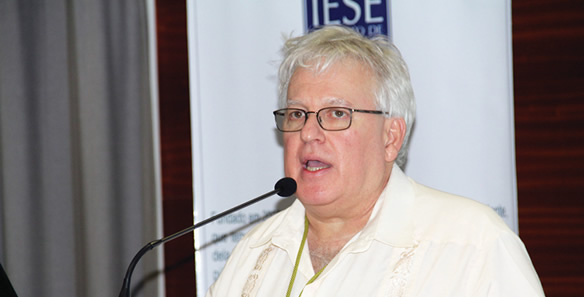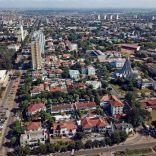Mozambique: President highlights 'controlled inflation and robust reserves' at central bank's 50th ...
“Each new millionaire has cost just over 2,000 poor” – Mozambican economist

O País
Economist Nuno Castel-Branco argues that the crisis in Mozambique is not only due to the hidden debts contracted by the companies Ematum, MAM and Proindicus, but also results from the capitalist policies adopted by the state over the years.
“Debt is a consequence and not a primary cause of the more general crisis. The debt crisis has also become a cause of other problems. If the primary cause of the crisis is not debt, it also cannot be illicit debt (which is part of debt). These two problems are very important and facing them is part of the solution, but they are not the primary cause of the crisis. The crisis was not caused solely by mismanagement or external factors,” Castel-Branco said when addressing the Fifth International Conference of the Institute of Social and Economic Studies (IESE), which started in Maputo yesterday.
The economist resorted to a “Forbes” study to conclude that Mozambique has seen an increase in the number of millionaires at the cost of the emergence of many new poor.
“The particular way this process of reorganisation and expansion of capitalism takes place in Mozambique is determined by the focus of the political and economic process in the last two decades, which consists of forming a class of capitalists. Specialist magazines, such as Forbes, show that Mozambique is one of the African countries with a faster rate of growth for the millionaire group. Between 2002 and 2014, the number of Mozambican millionaires doubled, increasing by a thousand, and the number of poor increased by about 2.1 million. That is, each new millionaire cost just over 2,000 poor,” he concluded.
For Castel-Branco, the formation of capitalists under Mozambican conditions depends on access to external capital, and in order to mobilise this capital, the state has made available strategic resources and its own indebtedness, leading the economy into the current crisis.
Castel-Branco adds that the strategy of formation of capitalists has been achieved by three waves of state expropriation: the privatisation of companies in the 1990s, the expropriation and privatisation of natural resources in the last decade and a half, and the state’s unbridled indebtedness to private capital over the last decade.
Castel-Branco says that the response to the resulting crisis is a fourth wave of expropriation, with the state assuming the privatisation of public finances, the financialisation of strategic resources and social austerity.
Castel-Branco says under this option, “the economy so generated does not multiply decent jobs nor reduce poverty, although it creates millionaires and reproduces structures dependent on economic expansion to the point of rupture, which, in this specific case, was crystallised in the debt crisis”.
Growth did not reduce poverty in Mozambique
The academic acknowledges that Mozambique has registered a robust economic growth rate in the last 10 years, but says that it has not been able to reduce poverty levels. Compared with the other countries in the region that had lower economic growth rates than Mozambique (around five percent per year), the economist inferred that poverty fell more in these countries (by two percent or more), which makes growth of around seven percent less effective in reducing poverty (by only one percent).
Castel-Branco once again criticised Mozambique for betting on extractive industries to boost the economy, since they produce limited jobs and, in the Mozambican context, have not reduced poverty.












Leave a Reply
Be the First to Comment!
You must be logged in to post a comment.
You must be logged in to post a comment.